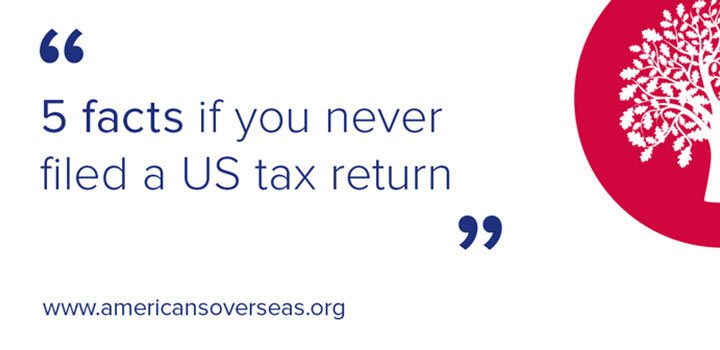
News Americans Overseas 2016

We hope you had a great year and have been able to handle your US tax challenges in the best way possible.
News Americans Overseas 2016
It has been a year with many developments for all Americans living Overseas. The media is starting to pay attention and several politicians have been actively doing their utmost to help improve this situation. We’re seeing publications and developments mostly in France, Germany, The Netherlands, and Australia.
US Taxation rules
The US taxation rules can only be changed by the US so the end of citizen based taxation still seems far away. Obama made a proposal to help Accidental Americans a while ago which is unfortunately off the table due to the change of administration. This proposal has to be resubmitted to Congress. The republican party makes a brief mention of CBT but is primarily focused on national tax reform which is a process that takes many years. However, there is still a lot that can be done in the areas of obtaining social security numbers, using banking services, and avoiding double taxation.
SSN
We have been getting reports that people are having an increasingly difficult time obtaining their SSNs. Normally the procedure goes via the US Dublin office (for most parts in Northern Europe) that tells an individual what documents they need to issue the number. Unfortunately, the US consulates, which have to verify the documents, sometimes ask for different documents. Please keep on sharing your experiences so we can share them (anonymously) with the designated officials.
Banking
FATCA is still requiring all banks to hand over all their US clients with an SSN. Banks are worried they will be penalized if they supply incomplete files without an SSN and might start closing accounts. Our advice is to start the SSN application as soon as possible to make sure that when your bank(s) starts asking for the number you can inform your bank (by showing the application forms) that you are in the process of obtaining one. Your bank is aware of the long waiting time to receive your SSN. Furthermore, we have lobbied to make the information provided by the banks much more clear. We found the letters that were sent unclear and the bank staff was often giving wrong information.
Double taxation
Double taxation is unfortunately still a problem for a small percentage of US persons. There have now been several double taxation cases that conflict with local tax laws. These cases will be conferred with the US per the tax agreement that has been made with each country. We’re monitoring this development but it’s still too early to know if it will bear any fruit.
We will also keep on actively informing the media and politicians in 2017 to encourage further improvements. As always if you have any questions feel free to call or email. Also if you’re already filing your taxes elsewhere, we’re glad to help.
To end the year on a lighter note we wanted to share this clip from Boom Chicago. Please enjoy and share!
From all of us at Americans Overseas we wish you a wonderful Christmas and a happy New Year.
Frequently asked questions
Understanding the US tax system, the obligations, and all the additional terms can be difficult. Especially if one lives outside of America. Is your question not answered? Contact us.
-
Who is required to file taxes in the US?
U.S. citizens and resident aliens who live abroad are generally required to file a federal income tax return and pay taxes on their worldwide income.
Read more... about Who is required to file taxes in the US? -
Do US citizens living abroad still have to file taxes in the US?
Yes, US citizens are required to file taxes on their worldwide income, regardless of where they are living.
Read more... about Do US citizens living abroad still have to file taxes in the US? -
How can I cash my US check?
Received an American check? You can cash your check in the following ways: cash the check at your own bank, transfer to another person (endorsement), cash checks using an online service or cash the check by another bank.
Read more... about How can I cash my US check? -
Are there any special tax forms required for US citizens living abroad?
US citizens living abroad may be required to file Form 2555 and/or Form 1116 to claim the foreign-earned income exclusion.
Read more... about Are there any special tax forms required for US citizens living abroad? -
What is FBAR filing?
FBAR (Foreign Bank Account Report) filing is the requirement for certain U.S. individuals and entities to report their foreign financial accounts to the Financial Crimes Enforcement Network (FinCEN) of the U.S. Department of Treasury. The FBAR filing requirement applies to U.S. persons who have a financial interest in, or signature authority over, one or more foreign financial accounts if the aggregate value of those accounts exceeds $10,000 at any time during the calendar year.
Read more... about What is FBAR filing?





